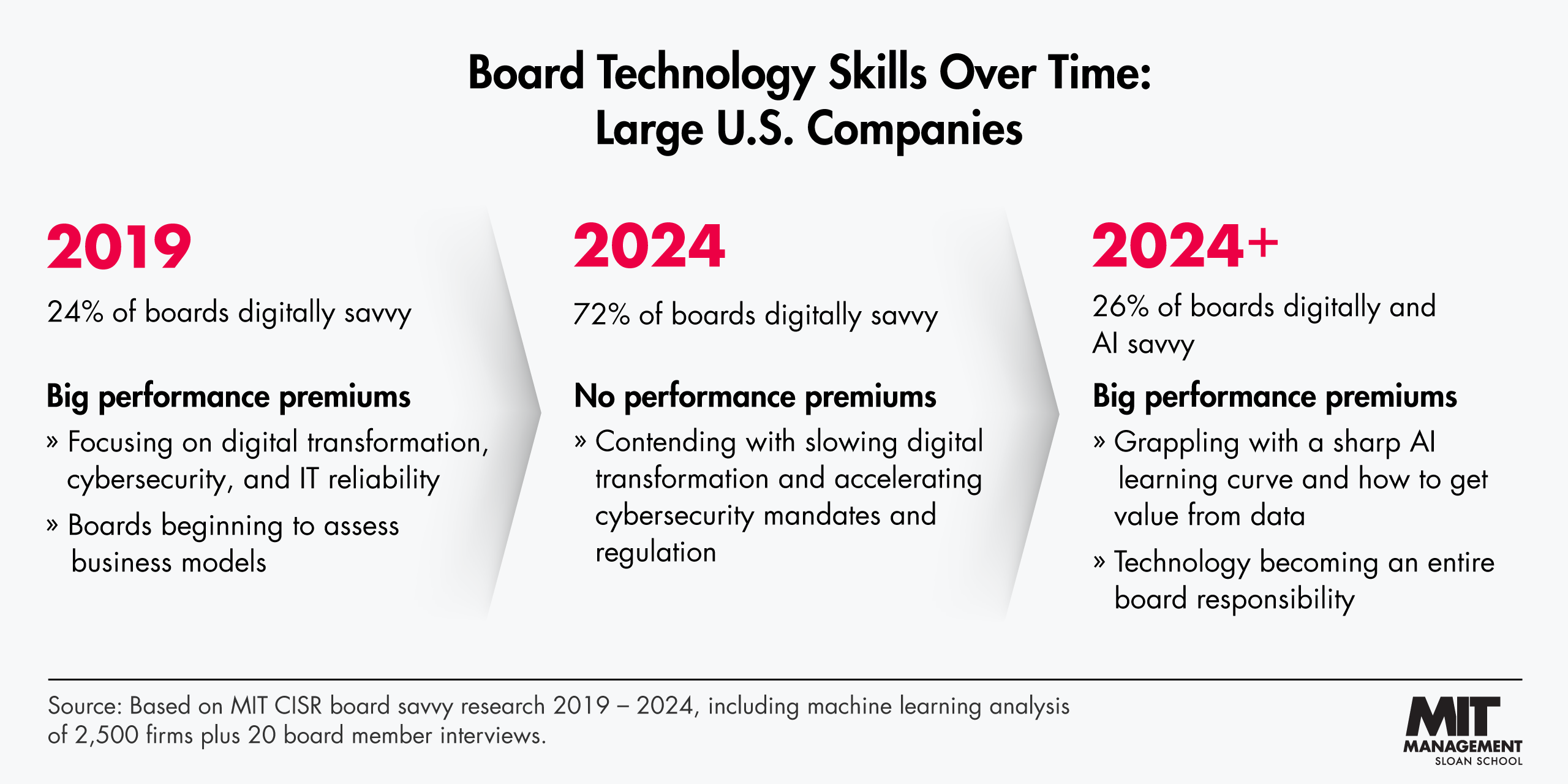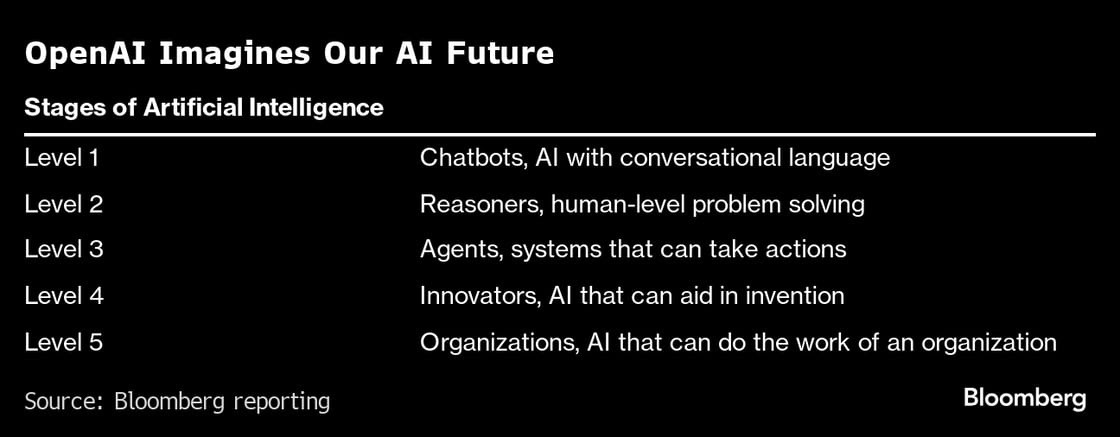Successful companies have Digital and AI-savvy boards
According to MIT, corporate boards that are savvy about artificial intelligence (AI) now play a crucial role in helping companies outperform their peers. In 2019, having a digitally savvy board was a competitive advantage, with digitally savvy boards found in about 24% of large U.S. companies and associated with roughly 30% better performance metrics, including market cap growth. However, by 2024, digitally savvy boards became common across 72% of companies and no longer served as a performance differentiator on their own.















